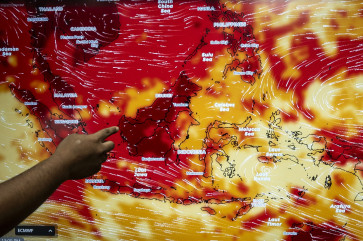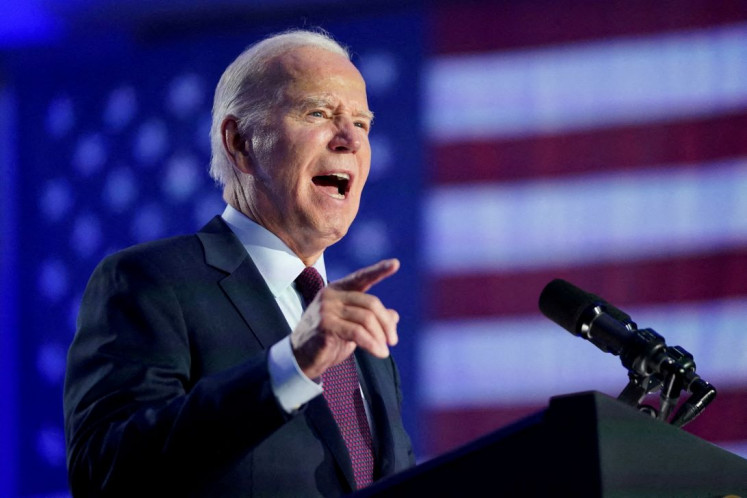Tunisia tops 2008 global competitiveness in Africa
Tunisia does not have Indonesia's wealth of natural resources
Change Size

Tunisia does not have Indonesia's wealth of natural resources. But this has not prevented the tiny North African nation from gaining a higher overall ranking on the World Economic Forum's 2008 Global Competitiveness Index than Indonesia, not to mention many advanced European countries.
"Tunisia ranked 36th on the index, making it number one not only in the Maghreb region but the whole of Africa. It's a recognition of our country's good governance," Tunisia's Ambassador to Indonesia, Faysal Gouia, told The Jakarta Post on Thursday.
Surprisingly, Tunisia outperformed several European and Asian countries, including Portugal (43), Italy (49), Russia (51), India (50), Indonesia (55) and Greece (67).
When asked about the secret of Tunisia's success, Ambassador Gouia said its a mixture of various factors including education, political reforms, women's emancipation, government transparency and macroeconomic stability.
"We give a high priority to education, reform, efficiency in spending and innovation," Gouia said.
Despite its financial meltdown, the U.S. topped the global list. Switzerland and Denmark ranked second and third, while Chad, ranking 134, came in last.
The survey is based on economic data and a survey of business executives. Each economy is assessed according to various pillars of competitiveness, ranging from infrastructure and macroeconomic stability, to business sophistication and innovation. These pillars are weighted for each economy to reflect their level of development.
Ever since Zine El Abidine Ben Ali became the president of Tunisia on Nov. 7, 1987, in an event popularly known as the Change of Seventh November 1987, Tunisia has progressed from an under-developed country to a story of growing success.
"Our per capita GNP has increased from 960 dinars in 1987 to 4,294.6 dinars (US$3,100) in 2007. Nearly 80 percent of the population are considered middle class. About 80 percent of Tunisian families own their own homes," Gouia said.
Tunisia is an ideal place for investment and trade, he added.
"The Medco Group already operates in Tunisia. They are happy and planning to increase their investment in the country," Gouia said, referring PT Medco Energi Internasional's 2007 purchase of a $10 million stake in Tunisia's Anaguid oil and gas block.
"We hope more Indonesian businesses will follow suit," Gouia added.
Commenting on the bilateral relations between Tunisia and Indonesia, Gouia said the ties are progressing on the right path.
"Around two decades ago, we started a tradition of political consultation in order to further enhance the relationship of cooperation and brotherhood between Indonesia and Tunisia."
Since then, Gouia continued, both countries have signed several agreements in areas including trade, promotion and protection of investment, avoidance of double taxation, tourism, technical and scientific cooperation, information and religious affairs.
In June this year, the countries hosted their 9th joint commission meeting in Tunisia. At the meeting, Indonesia's Foreign Minister Hassan Wirayuda and his Tunisian counterpart Abdelwaheb Abdallah signed an agreement on higher education.
According to Gouia, bilateral trade is a little less than $100 million. Tunisia mainly exports, phosphoric acid, dates, textiles, mechanical and electronic components to Indonesia and imports palm oil, plywood, textiles, electronics glassware, tea, coffee and timber products from Indonesia.









